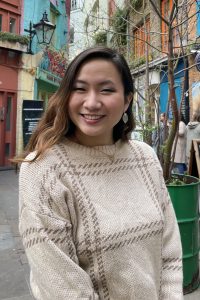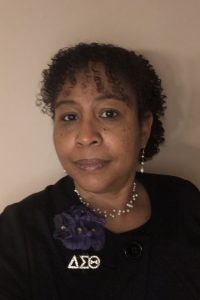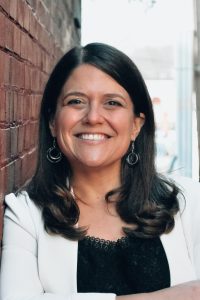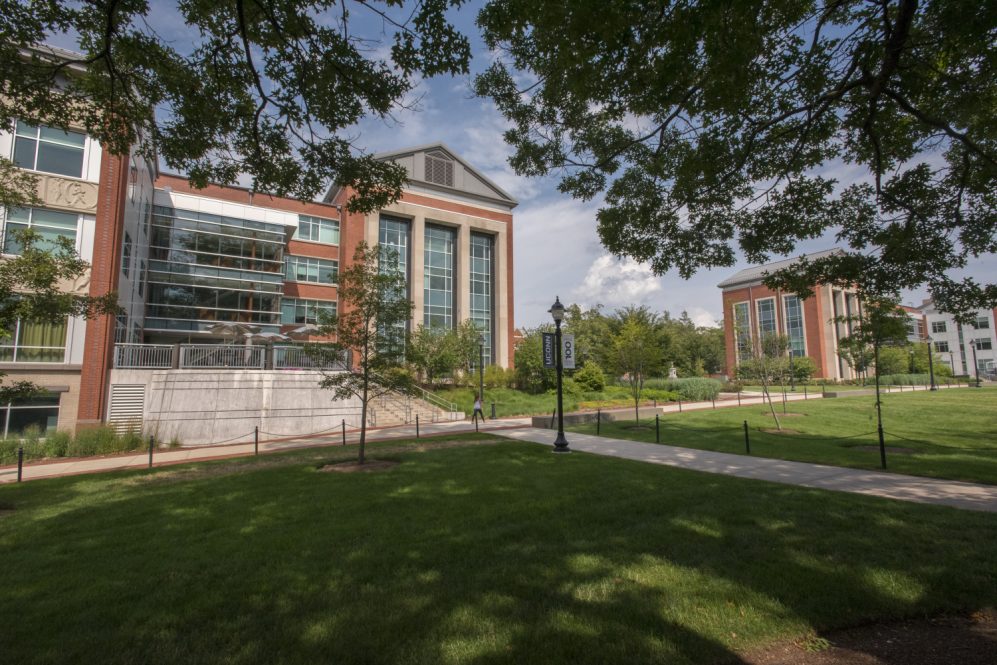Congratulations to the recipients of the Neag School of Education Alumni Board Scholarship for 2023:
- Megan Go– a master’s student in higher education and student affairs (HESA);
- Kenya Overton– a doctoral student in curriculum and instruction with a concentration in secondary mathematics education; and
- Amanda Sutter– a doctoral student in research methods, measurement, and evaluation.
The Alumni Board Scholarship provides a $1,000 award each annually to students enrolled in a Neag School master’s, doctorate, or sixth-year program who have proven academic excellence or demonstrated financial need.
First-Generation Student Looks to Impact Asian American and Pacific Islander Education

Being a first-generation student played a considerable role in Megan Go’s identity and adjustment to higher education. Instead of relaxing during her senior year of high school after college decisions were released, she spent her time applying for more scholarships as she knew her parents were not able to support her financially. Fast forward to graduate school, she is still doing the same thing, as she still needs to support herself completely.
Go supported herself as an undergraduate student at UConn by working various jobs and pursuing additional scholarships. Go earned a degree in psychological sciences and communication, with a minor in global studies, and studied abroad at Charles University in the Czech Republic.
In her free time as an undergraduate, Go become an active leader with Delta Phi Lambda, a nonprofit organization that advocates for Asian awareness and empowers women leaders, and the Asian American Cultural Center, where she served as a mentor for students and assisted children with activities in the fields of science, culture, and the arts.
Other college adjustments were difficult for her, since no one in her family attended college in the U.S.
“I had to navigate classes, the social environment, and career development independently,” Go says. “However, my experiences as an undergraduate student from a minoritized community inspired me to enroll in UConn’s HESA program to work in the field.”
“Being selected made me feel that my values, efforts, and hard work were recognized. As most immigrants do, I constantly battle with imposter syndrome, which was a sign that I’m going in the right direction and deserve to be where I am today.” — Megan Go
She chose the HESA program for its reputation, knowing she would get a quality education. Go appreciates the smaller class sizes and the cohort model that the program uses. She has also learned about college student development and the gaps in accessibility in higher education, so she can better serve her future students and provide them with the support they need.
Go says she is honored to be a recipient of the Neag School’s Alumni Board Scholarship.
“Being selected made me feel that my values, efforts, and hard work were recognized,” she says. “As most immigrants do, I constantly battle with imposter syndrome, which was a sign that I’m going in the right direction and deserve to be where I am today.”
In addition to her studies and work as a graduate student, she’s heavily involved in developing curriculum, workshops, and lesson plans for Connecticut teachers, as the state mandates that K-12 schools offer Asian American and Pacific Islander (AAPI) education.
After graduating from the UConn HESA program, she plans on continuing AAPI work with the state: “I’m looking forward to all the work we will accomplish, as this project holds a special place in my heart.”
Long-Time Educator Seeks to Help Black Community in Math Education

As an educator for 20 years, Kenya Overton has witnessed racist policies that Black students endure and, as a Black woman educated in this country, she has survived them. From being placed in remedial classes to facing disproportionately high suspension and expulsion rates, Black students’ marginalization in academic spaces is well documented.
Overton says she was motivated to pursue her doctorate by a quote — “The academic spaces we belong to are designed to maintain and protect the vestiges of slavery, colonialism, and imperialism that limit who access and succeed …” — written by Neag School faculty members Frank Tuitt and Saran Stewart in the book “Doing Diversity for Success in Higher Education: Redressing Structural Inequalities in the Academy.”
“Earning my doctorate will allow me to fulfill my mission of transforming these spaces into nurturing environments,” Overton says. “I can train the next generation of teachers and work with districts to dismantle their institutional policies that limit Black students’ access to quality education.”
Overton began her career teaching in public schools in Springfield, Massachusetts. She would go on to teach in New York and Tennessee, before returning to Connecticut, where she earned a Sixth Year Certificate in educational leadership from UConn and became a team leader for Hartford Public Schools. She also began teaching at the university level, specifically Calculus II to UConn students, and became a university supervisor for the Neag School’s Integrated Bachelor’s/Master’s Teacher Education program.
“Earning my doctorate will allow me to fulfill my mission of transforming these spaces into nurturing environments.” — Kenya Overton
Overton is now the program manager for the Connecticut Noyce Math Teacher Leaders Program at UConn. She is also a doctoral student, specializing in secondary mathematics education.
Overton’s research interests include investigating organizational structures, policies, and practices in secondary schools that contribute to Black students’ math success, developing equity-minded math educators, and teaching math through hip-hop pedagogy. After graduating, she plans to continue to ensure that Black students receive a high-quality, culturally affirming experience in their math classes.
“By partially funding my research on how to provide the best possible educational experience in mathematics for Black students, receiving this scholarship gives me hope,” Overton says.
Evaluation Advocate Aims to Bridge Past Experience With Current Research

Amanda Sutter, also a first-generation college student, says she has always had an insatiable hunger for learning, but had no guides for navigating higher education. Due to her working-class background, she says she also accumulated a lot of student loan debt.
She was passionate about education early on, as evidenced by her drive to be valedictorian, a love of teaching her peers, and her advocacy to improve her high school. Sutter used college as a springboard to explore the world, and the more global inequities she saw, the more she perceived education as the most critical tool for improving lives.
Sutter felt called to teach but needed a master’s degree and experience first to be able to help students apply what they learn and practice what she teaches. The work brought her to a love of evaluation and cycles of learning for all levels of education programs. Eventually, she began teaching graduate students evaluation and came full circle, back to the need for master’s and doctoral degrees through the Neag School’s research methods, measurement, and evaluation program.
“I decided to get my Ph.D. to amplify my evaluation skills, to be a better methodologist, and support my field to grow,” she says. “Neag became the clear choice when I learned about the opportunity to work with field-renowned experts that supported my goals and shared my values. The opportunities for projects and building skills have been plentiful, setting me up for success now and into the future.”
Sutter currently works as a graduate assistant focusing on the design and implementation of an evaluation practice instrument to about 300 evaluators across the U.S. She’s an advocate for the field, having given almost 50 presentations on education and evaluation topics.
“The opportunities for projects and building skills have been plentiful, setting me up for success now and into the future.” — Amanda Sutter
She earned her bachelor’s in Spanish and sociology from Alma College, then a Master of Arts in educational foundation and policy and a Master of Social Work from the University of Michigan. Sutter would go on to various leadership roles in school quality improvement, substance abuse, and collective impact coalitions for a community change organization. She also served as an external consultant for evaluation projects and in evaluation and research roles for Big Brothers Big Sisters and YMCA locations in Massachusetts. Most recently, she served as a researcher for the American Institutes for Research and as an evaluation center manager at Washington University in St. Louis.
Sutter says she appreciates this scholarship due to its validation of her path, which she says is unusual.
“I worked for a long time before pursuing a Ph.D., and the transition back to school has been challenging in many ways,” she says. “Recognition like this, especially being selected from among so many brilliant peers at Neag, helps to validate all my work — the practice work I’ve done in the past, the research I’m doing now, and, maybe most importantly, the belief in me for how I might be a bridge between these two worlds.”
Alumni Board Scholarship recipients Megan Go, Kenya Overton, and Amanda Sutter will be invited to attend the 2023 Neag School Scholarship Celebration in the fall, and will be recognized at the 2024 Neag School Alumni Awards Celebration in spring 2024. For more information about supporting Neag School students, visit s.uconn.edu/neaggiving.



